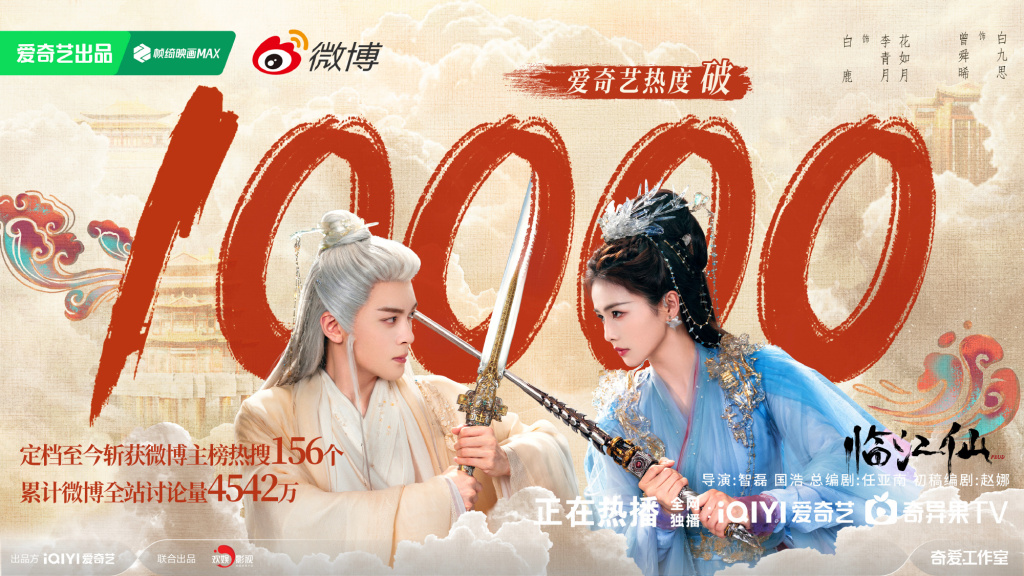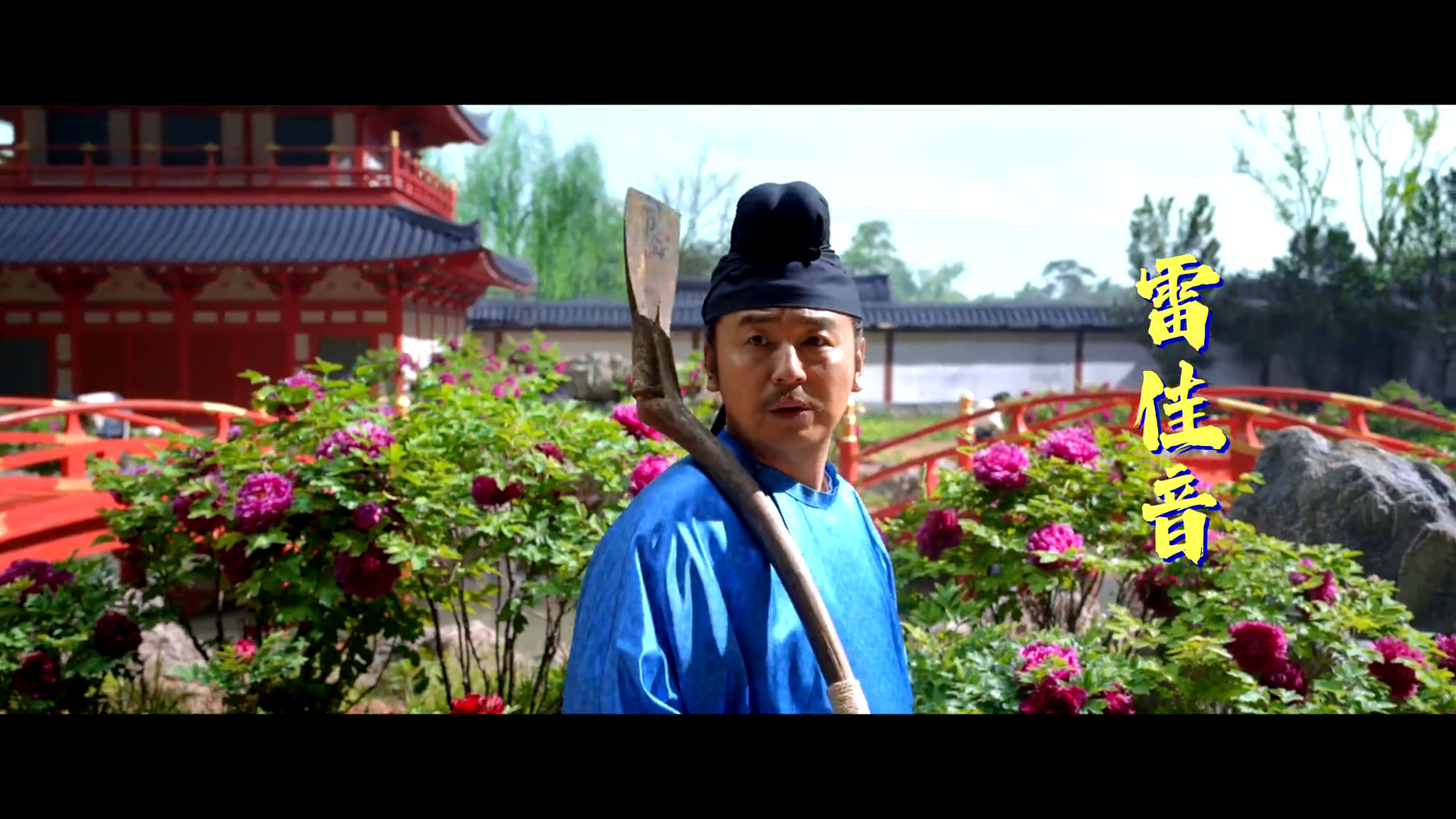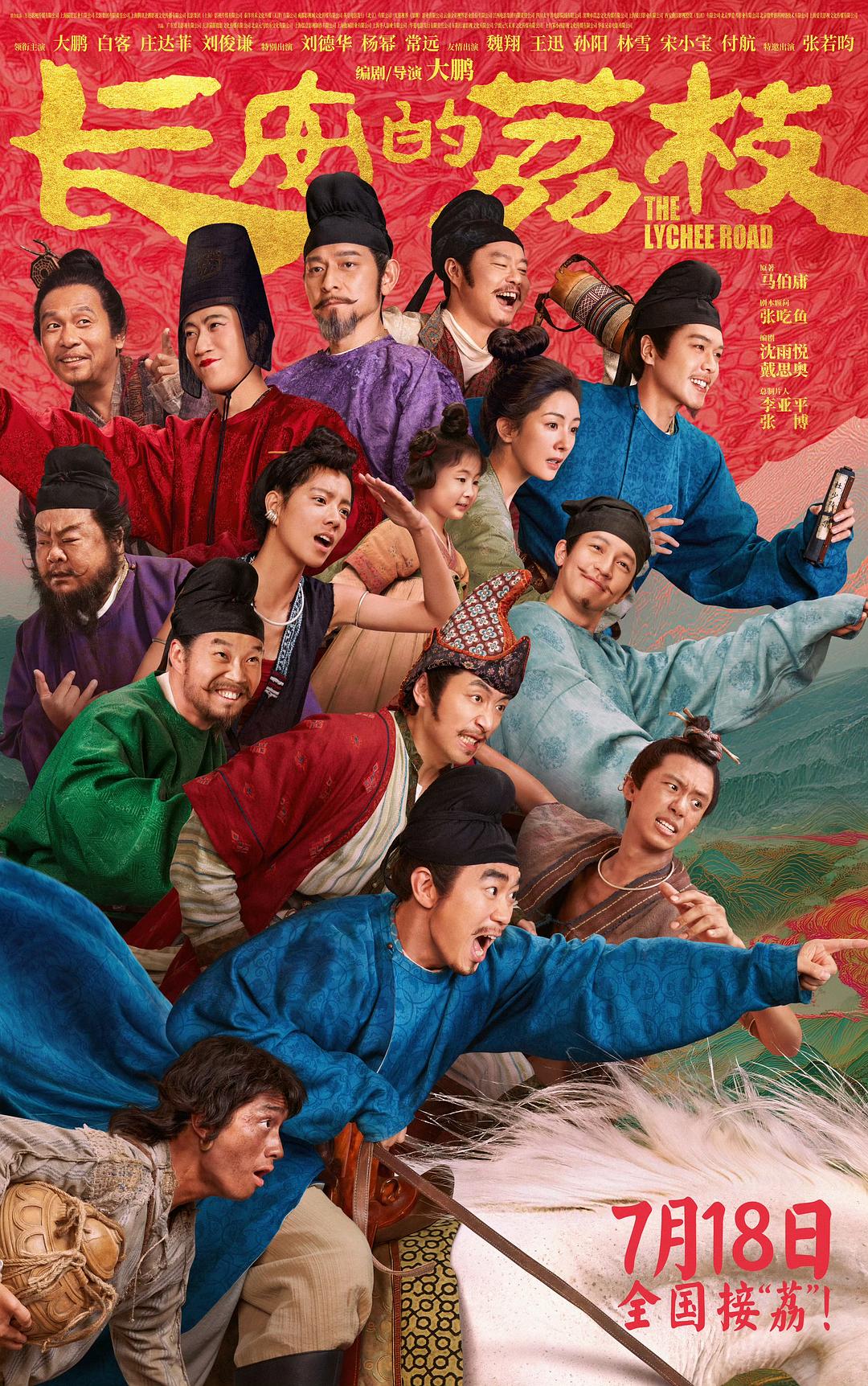
This summer, there is a bumper harvest of lychees. Following the TV series and stage play, the movie version of "Lychees in Chang'an" was also released.
This work, adapted from Ma Boyong's novel of the same name, tells the story of strategy, human nature, workplace and officialdom, history and the present during the arduous task of transporting lychees in ancient times. Because it can reflect rich enough aspects, it has naturally become a popular choice for adaptation.
On the first day of its release, Douban scored 7.7, making it the first dark horse of the summer domestic films.

Poster of "Lychees in Chang'an"
The film version directed by Dapeng tells the story of Li Shande, a minor official in the Tang Dynasty, who accidentally took on the "impossible task" of transporting fresh lychees from Lingnan to Chang'an. Under the pressure of the deadline for the birthday of the imperial concubine, Li Shande went from being timid and at a loss at first to giving it a try for his family. He traveled back and forth between Lingnan and Chang'an, constantly trying to keep the fruits fresh, planning transportation routes, and dealing with various forces.
The calculations hidden in the litchi transportation route map are not only the dilemma of the petty officials in the Tang Dynasty, but also the "ox-horse moment" that every contemporary working person cannot escape. The reunited "Annual Meeting" trio of Dapeng, Baike, and Zhuang Dafei, even if they have changed their appearance and dynasties, can't hide the strong "working people" atmosphere, which naturally makes people look forward to a drama of "rectifying the Tang Dynasty workplace".
In terms of narrative rhythm, the film version of "Lychees in Chang'an" has obviously accelerated its pace. Compared with the intricate "slowly telling" of the drama version, the film version is like a thrilling "speed". At the beginning of the movie, Li Shande, played by Dapeng, has just taken on a mortgage and is involved in an absurd workplace storm.
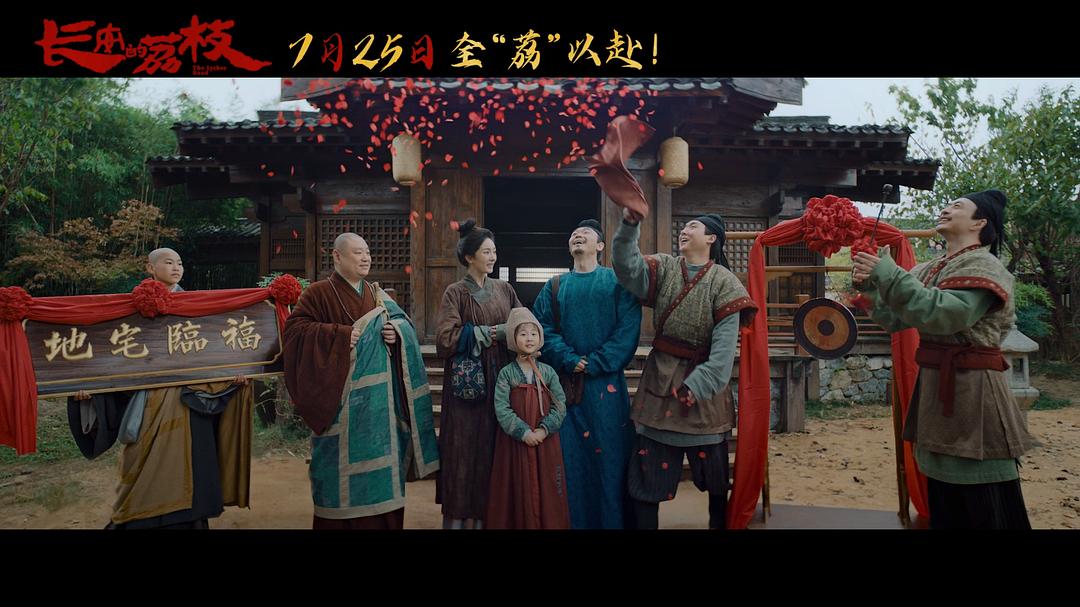
Li Shande starts off with a mortgage
As a ninth-rank official in the Shanglin Bureau, he was inexplicably promoted to the position of "lychee envoy". He had to travel 5,000 miles in a short period of time to solve the problem of keeping lychees fresh, which "change color in one day, change fragrance in two days, and change taste in three days". Otherwise, he would die. There is no foreshadowing of the boss and colleagues in the drama version "passing the buck". The honest man took the bad luck, and the pot came from the sky, and there was no room for second thought.
From the moment he received the task, Li Shande embarked on a race against time experiment and travel. From studying preservation methods, to planning transportation routes, to dealing with various forces, each link is closely linked, making the film full of urgency and suspense.
In order to make the plot more focused, the relationships between the characters in the film version are simpler, and the part about power struggles and party struggles is only mentioned briefly. However, the deep-rooted problems of the entire system are hard to ignore during a trip to transport lychees.
Li Shande wanted to transport lychees back to Chang'an, but the difficulties were divided into two parts: the first half was technical difficulties, and the second half was personnel difficulties. Technical difficulties were naturally not difficult for a science and engineering man with a background in mathematics. He got the supply from agricultural expert A Tong, and with the sponsorship of the wealthy second generation Su Liang, he finally succeeded after several rounds of experiments.
Even more complicated is the human problem. Since the technical problem has been solved, why did the sage of Chang'an not eat the delicious Lingnan lychees long ago? This has become the "ineffectiveness" of others. Under the guidance of "not seeking merit, but seeking no mistakes", each department used process card progress to pass the buck, and they were very good at it. The upright Li Shande only knew the feasibility of his own plan, and it was his good friend who told him the truth that "a sedan chair is carried by many people".
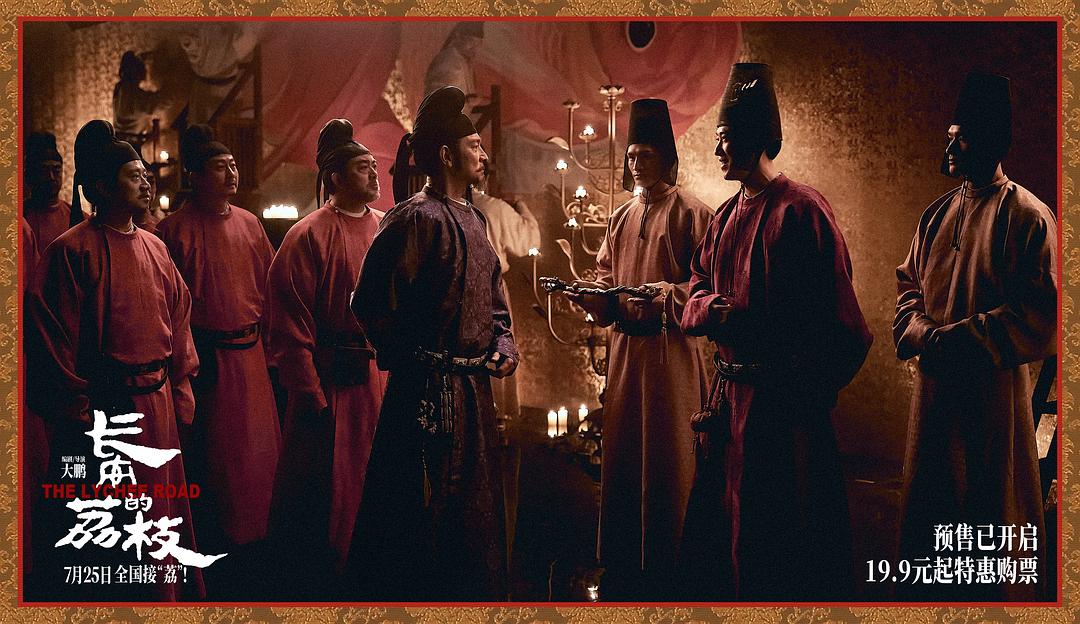
Right Prime Minister Yang Guozhong and Eunuch Yu Chengen
The instigation of the right prime minister, a patron, directly revealed the cruel fact that "processes are norms prepared for the weak." In the final delivery, the various prefectures "added layers of burdens" and all the lychee forests in Lingnan were cut down in order to finally reach the destination. The social operation rules reflected by a small lychee are still as intriguing as ever.
As a film, "Lychees in Chang'an" has its own "high-level" expression. The author's favorite scene is when lychees are finally transported to Chang'an and appear at the imperial concubine's palace banquet, placed together with many fresh fruits, but it also seems mediocre and dispensable. Other foreign fruits are not produced in Chang'an. Are there other "Li Shande" who work hard for them on the way? And the dignitaries waiting to taste them, do they really want to eat this "lychee in Chang'an" so much? The saintly imperial concubines never show their faces throughout the film. They are just symbols of power. The imperial concubine's jade hand that reached out to the lychees was retracted halfway, and the audience did not see the scene of the concubine picking up the lychees and peeling them.
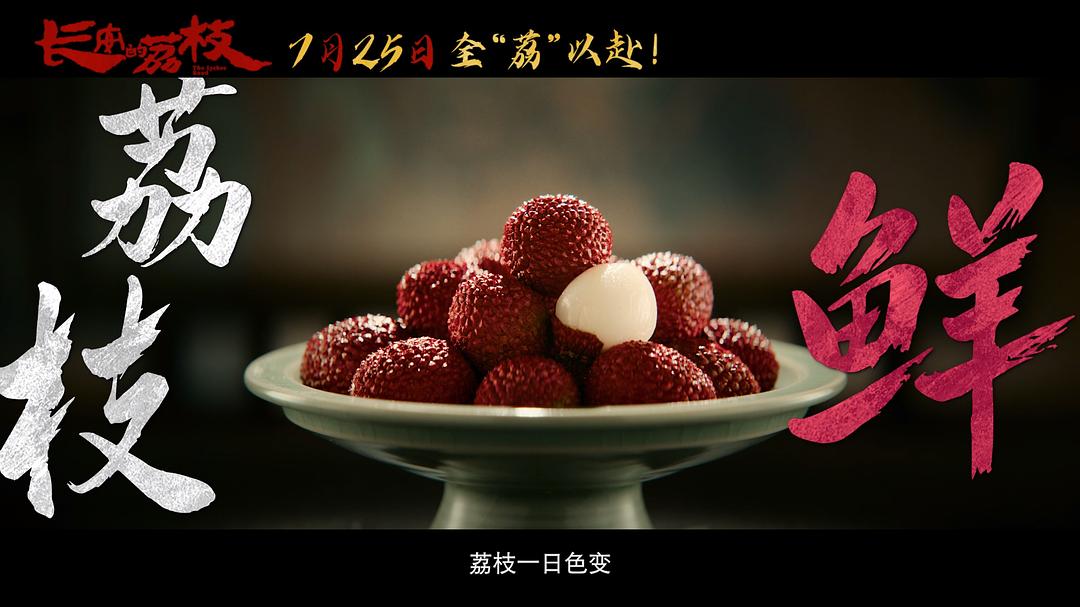
The main character of the film is Lychee
At this point in the film, the part about "lychees" has a brilliant enough ending. There is nothing to say, but instead there are a variety of feelings in my heart.
However, it is not a wise choice to explain the story and characters with a clear "behavior", which is why I feel the film's treatment is regrettable.
The workplace depression that had been laid out for nearly two hours before finally failed to lead to a hearty outburst. The confrontation between Li Shande and the right prime minister Yang Guozhong was not a counterattack based on professionalism, but a suspended accusation. Li Shande, who was a "mathematician", finally completed his task successfully and ran to the right prime minister to launch a "mouth cannon" that had no effect on the current situation. Although the lines were also impressive, as the climax of the film, this sharp "mouth cannon" was neither in line with Li Shande's dull character in the whole film, nor was it effective and fragmented in terms of dramatic function.
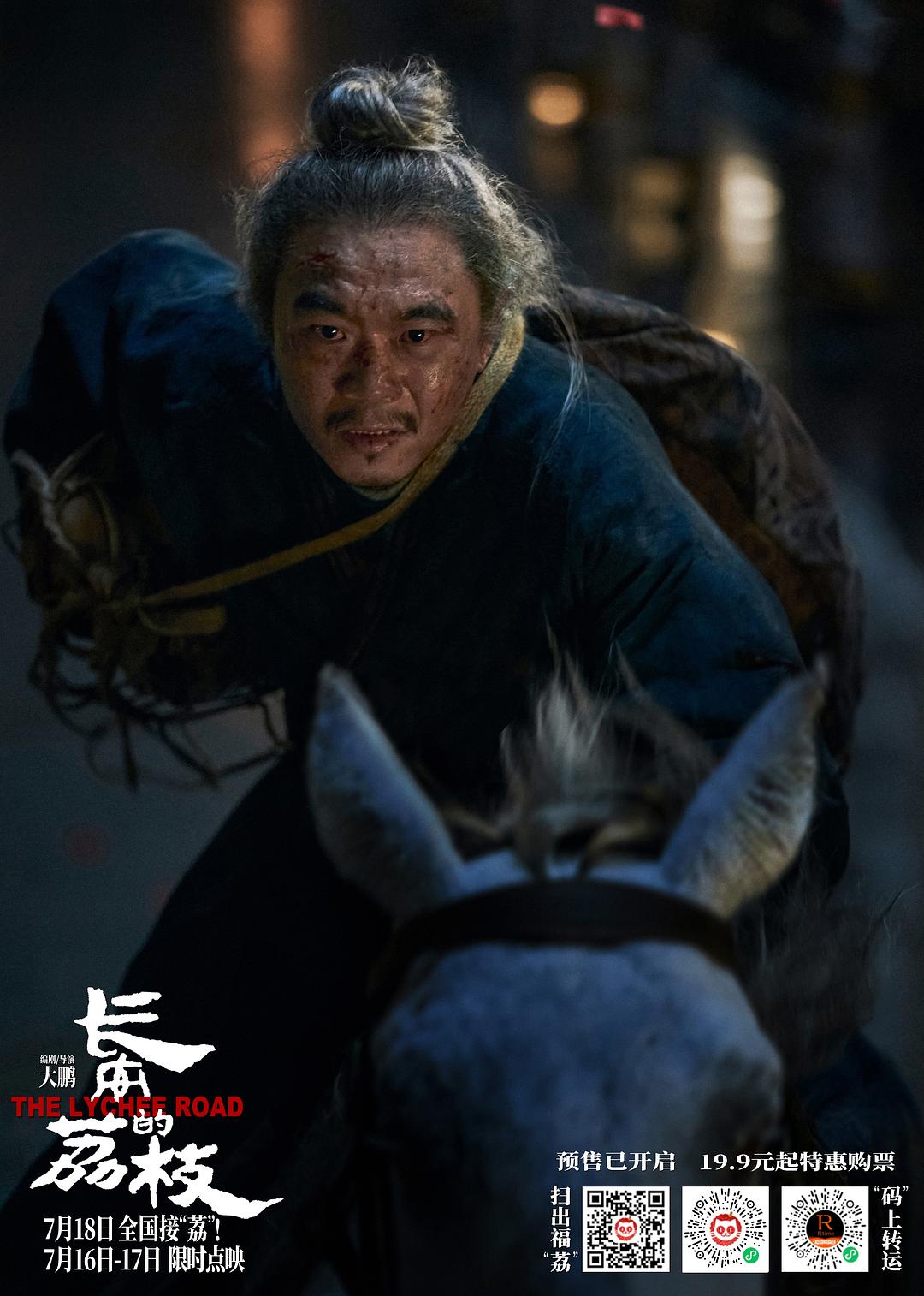
Lee Sun-deok "A Rider in the World"
The brilliance of the first half of the film lies precisely in the fact that it constructs a realistic narrative logic of "using technology to fight power". Li Shande used counting rods to measure the loss of 5,000 miles in the Lingnan orchard, tested the preservation time of the "salt wrapping method" in the ice cellar of the post station, and even risked his life to modify the dispatch rules of the government post station in order to optimize the transportation route. These details hide the most moving resistance, and also give the audience an expectation of "using rules to counter rules", and all the narratives are realistic.
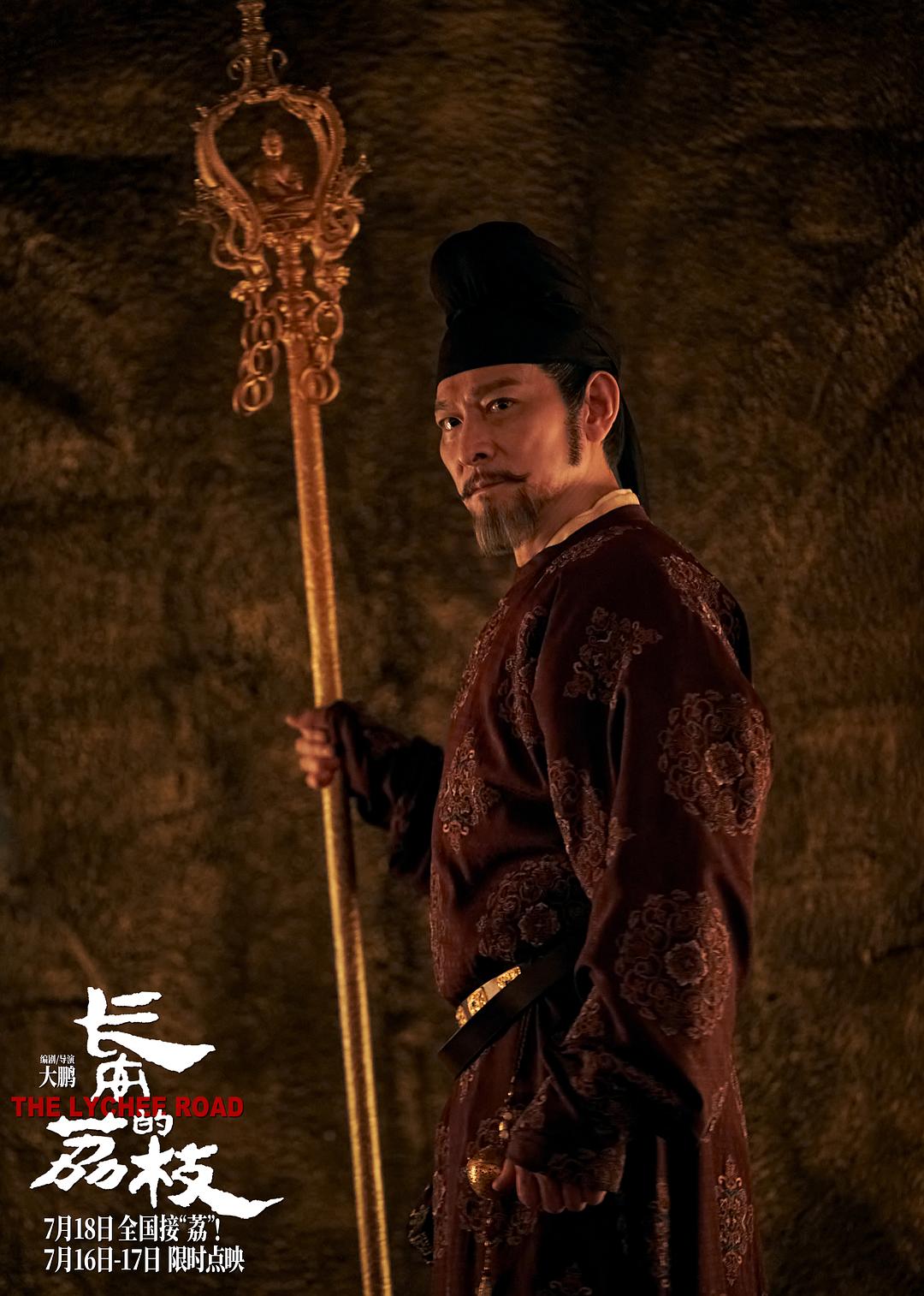
Andy Lau as Yang Guozhong
In contrast, the TV version chose to use his expertise to "ripen" lychees, destroying the "fresh-keeping results" he developed, which is more in line with the resistance of a "technician". In the movie version, Li Shande successfully completed the task and turned to roar at Yang Guozhong. The choice of the movie simplified the "resistance" of the weak into emotional catharsis, which could not really give the audience an outlet for their emotions.
Of course, in such a big era and with such a deep-rooted disease, Li Shande experienced the rise and fall of his era from his own perspective, using litchi as an introduction. This is the spirit of the original work, and the movie has done it all. However, the narrative clues are more focused on the main line of transporting litchi, and the explanation of the side lines is relatively simple and crude. When it finally falls on the point of the rise and fall of the family and the country, although the creator's logic and expression can be understood from the spiritual connotation, it always feels a little short of the breath in terms of intuitive emotional identification. After all, the most essential part is supported by the original work, and the movie does give extra points, but it is indeed not much.
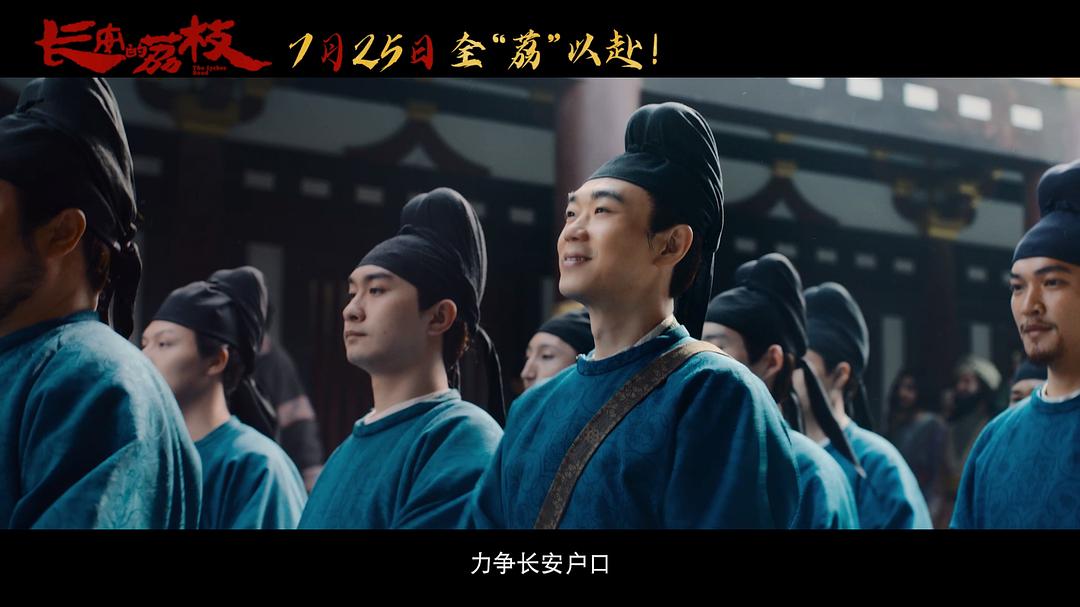
The "oxen and horses" of the Tang Dynasty were no different from today
Overall, this "lychee" is worth a try. The performances show the actors' vivid humor and touching moments, the setting reflects the exquisiteness and grandeur of the prosperous Tang Dynasty, the story allows the audience to see the decadence and absurdity behind the prosperous times, the common points between ancient and modern times in the process, and Dapeng's great expertise in capturing the emotions of contemporary society. Although it is not that "refreshing", it can already be regarded as a "fine fruit".
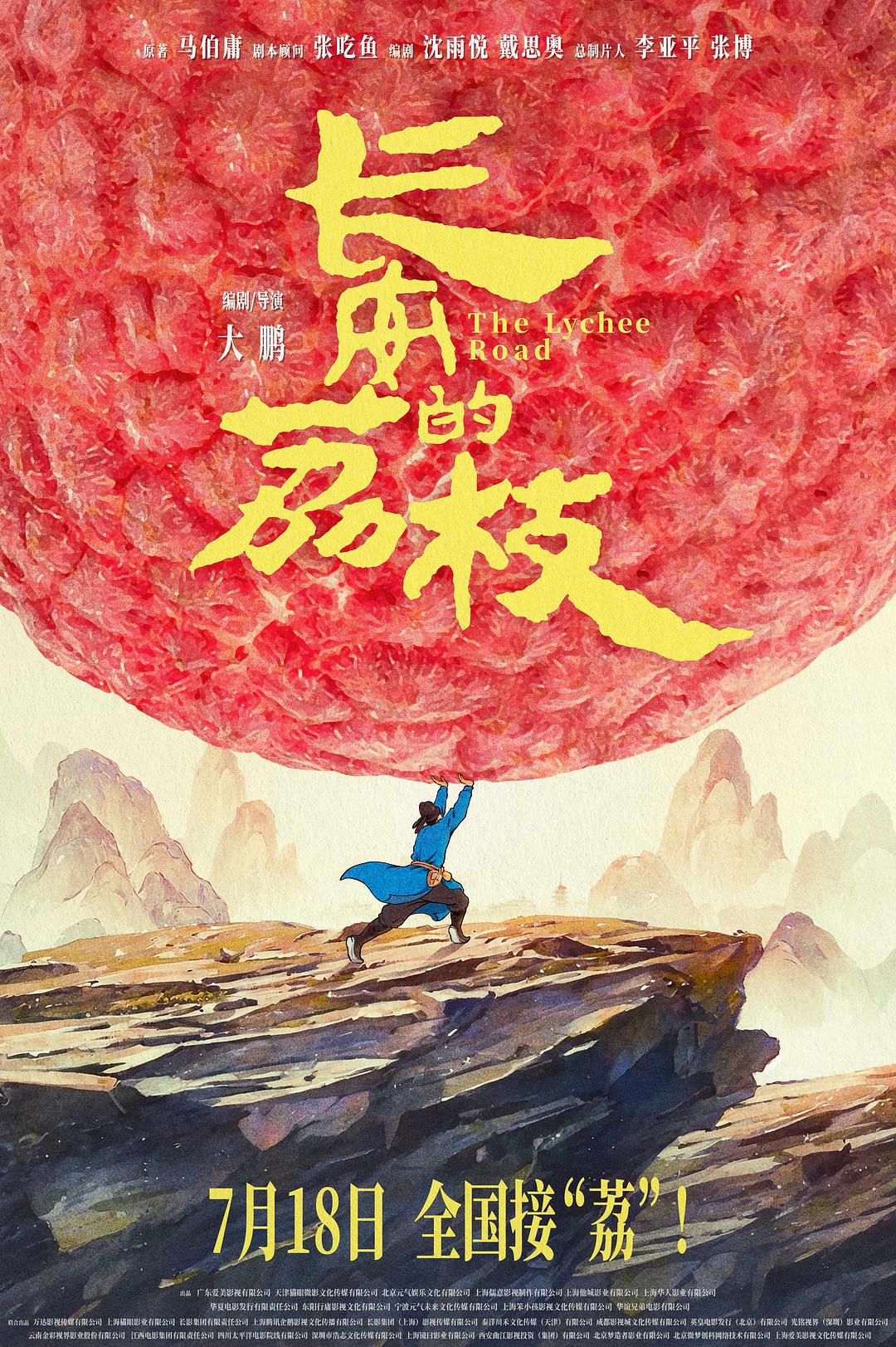
Poster of "Lychees in Chang'an"
